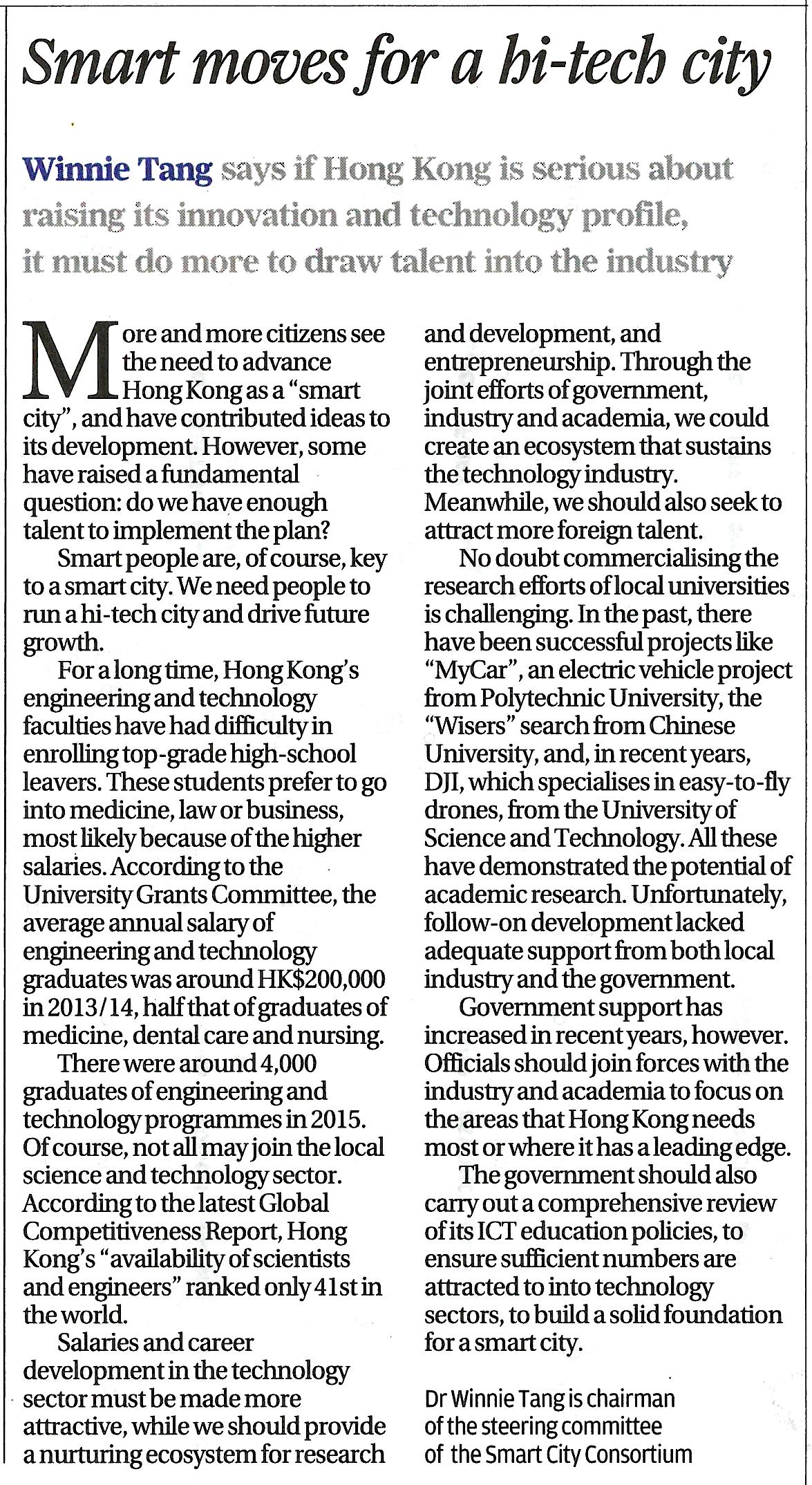網上版請按此

Smart moves for a hi-tech city
Winnie Tang says if Hong Kong is serious about raising its innovation and technology profile, and creating a 'smart city', it must do more to draw talent into the industry
More and more citizens see the need to advance Hong Kong as a “smart city”, and have contributed ideas to its development. However, some have raised a fundamental question: do we have enough talent to implement the plan?
Smart people are, of course, key to a smart city. We need people to run a hi-tech city and drive future growth.
For a long time, Hong Kong's engineering and technology faculties have had difficulty in enrolling top-grade high-school leavers. These students prefer to go into medicine, law or business, most likely because of the higher salaries. According to the University Grants Committee, the average annual salary of engineering and technology graduates was around HK$200,000 in 2013/14, half that of graduates of medicine, dental care and nursing.
There were around 4,000 graduates of engineering and technology programmes in 2015. Of course, not all may join the local science and technology sector. According to the latest Global Competitiveness Report, Hong Kong's “availability of scientists and engineers” ranked only 41st in the world.
Salaries and career development in the technology sector must be made more attractive, while we should provide a nurturing ecosystem for research and development, and entrepreneurship. Through the joint efforts of government, industry and academia, we could create an ecosystem that sustains the technology industry. Meanwhile, we should also seek to attract more foreign talent.
No doubt commercialising the research efforts of local universities is challenging. In the past, there have been successful projects like “MyCar”, an electric vehicle project from Polytechnic University, the “Wisers” search from Chinese University, and, in recent years, DJI, which specialises in easy-to-fly drones, from the University of Science and Technology. All these have demonstrated the potential of academic research. Unfortunately, follow-on development lacked adequate support from both local industry and the government.
Government support has increased in recent years, however. Officials should join forces with the industry and academia to focus on the areas that Hong Kong needs most or where it has a leading edge.
The government should also carry out a comprehensive review of its ICT education policies, to ensure sufficient numbers are attracted to into technology sectors, to build a solid foundation for a smart city.
Dr. Winnie Tang
Chairman of the steering committee of the Smart City Consortium